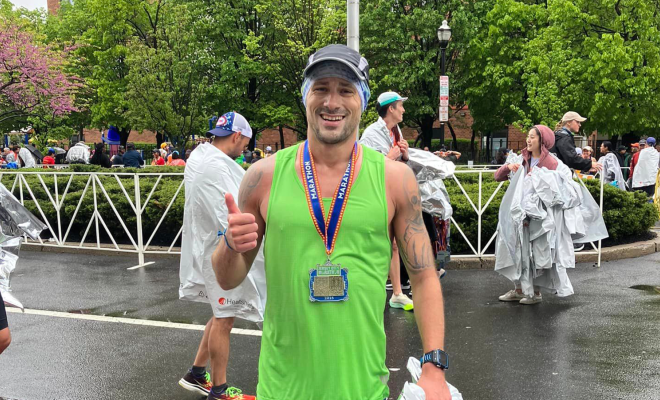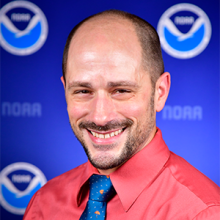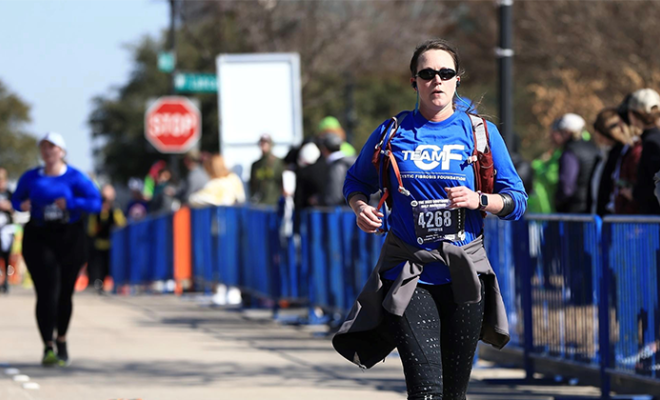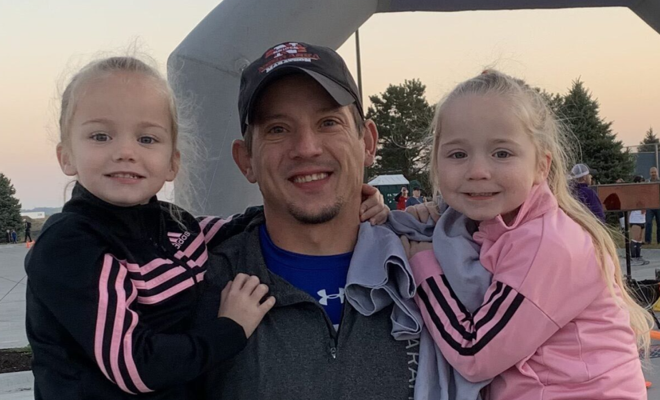I crossed the marathon finish line and stopped my watch. It read 2:58. I had done it! I had broken three hours and qualified for the Boston Marathon. As I supported myself along the railing of the finishing chute, my memories flooded back to the days when I would need to use the railing just going up a flight of stairs.
You see, people with cystic fibrosis are not supposed to be able to run marathons. At least that’s what I was told growing up.
I was diagnosed at 9 weeks old, so the complications of CF were always just normal for me. However, they were not normal for those around me, and I experienced the uncomfortable interactions that come with growing up with a genetic disease. I did not want to take my medicine in front of kids I didn’t know. I faced awkward questions about why I was the skinniest kid on the soccer team even though I took extra breaks to eat pretzels. I had to travel with the nurse on field trips to ensure I got all my medicine. Despite that, I never rebelled against my treatments, and I think that had a lot to do with how my pediatric care team at University of Massachusetts (UMass) treated me — like part of their family.
From when I was old enough to understand, they were always honest with me about why I had to suffer through quarterly care center visits, frequent adjustments to my medications, and at least one 2- to 3-week hospitalization per year.
I never wanted to do these things, but they explained why they were so important. They patiently communicated how the disease would likely progress, despite the admittedly less than favorable outlook since the average life span then was only about 30 years.
While it took a significant personal commitment to stay healthy, they were always there to help (and during a really bad stretch in fourth grade, my doctor even told me he loved me).
Part of my commitment was playing sports in school because I was told they would help my breathing as much as the daily chest physical therapy and nebulizer treatments. There were times when I felt great and could run the entire practice with my teammates, but there were also times I got winded just doing warm-ups. I was never very good at these sports, but I stuck with them because I knew it was unlikely I’d always be healthy enough to participate. I was told that my lungs would deteriorate, and the requirements to stay healthy would become harder as I got older.
I got sick more frequently in college, and endured times when even just walking up the stairs at my dorm left me out of breath. I resorted to more rest and less activity, which unfortunately resulted in more time spent in the hospital with my UMass family.
After yet another hospitalization during my junior year, with the guidance of my family and care team, I made the difficult decision to transfer universities to focus more time on my health. I did not want to leave and admit that CF was starting to beat me. However, this was yet another instance where my care team guided me correctly, as that next year was the first year in my entire life I did not have to be hospitalized.
After that first year without being hospitalized, I felt I had turned a corner with my health. I started playing sports again even as I moved to North Carolina for my first job, which transitioned to weight training and, eventually, Spartan Races. This contributed to a steady increase in my lung function, and my doctor at the University of North Carolina told me that I was so healthy I’d “probably experience more symptoms of old age than CF.”
In 2021, I started Trikafta® and hit a milestone: 15 years without being hospitalized! My lung function reached 103%, so my new doctor at Johns Hopkins reduced some of my medications and allowed me to stop my breathing treatments. I felt like I was reversing CF and getting healthier with age. As great as my care teams had been, no one had ever told me that was possible.
Being so healthy also helped me fall in love with long-distance running again, so I decided the best way to prove that CF does not have to be limiting was to try to do something only a small percentage of people even without CF can do: qualify for the Boston Marathon.
I trained hard and was diligent about completing every workout. Sometimes I ran solo at 5 a.m. Sometimes I ran with an evening group. Some weekends, my wife would bike next to me. The 60-mile weeks were exhausting, and I questioned if this was something I could really do. But just like when I got winded playing soccer in school, I never quit.
On race day I met other runners on the course and we worked together to reach our goals — a marathon care team! At mile 20 I realized that we were talking while running. I was not struggling to breathe. I didn’t need to stop for an extra break. No one was asking me why I was skinny or why I was taking salty gels. I was just another marathoner, and when I crossed that finish line, I did not even feel like I had CF anymore.
People sometimes ask me why I want to run marathons and deal with the training and pain that accompanies them. As I was supporting myself on that railing, I thought back to having to endure years of hospitalizations, taking thousands of medications, and coping with the uncertainty of a future with CF. I realized that CF was much harder than racing 26.2 miles. I generally reply to these people that I don’t have to do these things, I am lucky that I get to.
And now I get to run Boston, because people with CF can run marathons.
Interested in sharing your story? The CF Community Blog wants to hear from you.





